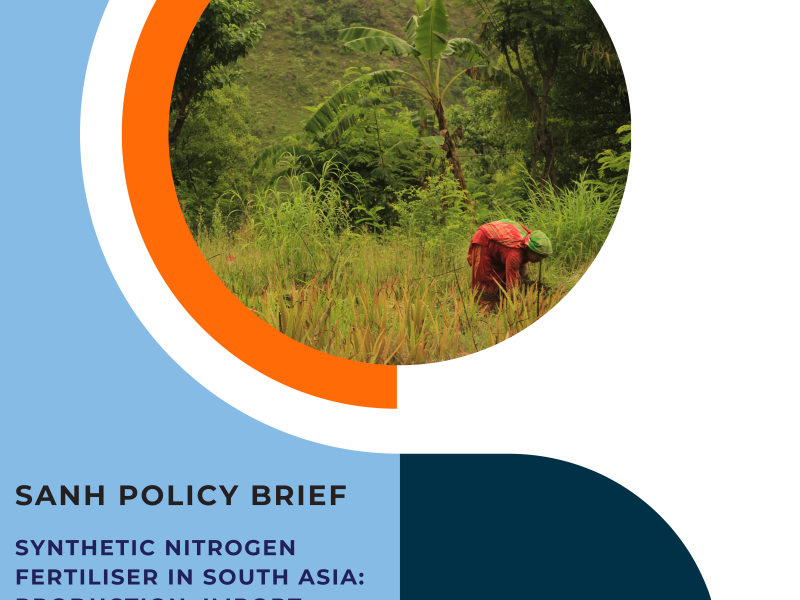This policy brief is produced by the UKRI GCRF South Asian Nitrogen Hub (SANH). It provides an overview of the patterns and trends in synthetic nitrogen (N) fertiliser use in crop production, import, export and emission in the South Asian Region (SAR) and its member countries; Afghanistan, Bangladesh, Bhutan, Nepal, India, Maldives, Pakistan, and Sri Lanka.
In summary, reactive nitrogen (Nr) in fertilisers is essential for meeting global food and animal feed demands, but Nr pollution has become a major environmental issue across all scales. For SAR, inefficient use of synthetic N fertiliser is a key factor contributing to water pollution, air pollution, climate change, biodiversity loss and soil degradation. Further insights are provided on major fertiliser products, as well as in crop production, import and export. These data are essential for informing and promoting sustainable nitrogen management. Evidence based policy is more important than ever.
The SANH is supported by UK Research and Innovation (UKRI) through its Global Challenge Research Fund (GCRF) to gather evidence on nitrogen issues to support countries in the South Asian Region (SAR) comprising eight countries (Nepal, Bangladesh, Pakistan, India, Bhutan, Sri Lanka, Afghanistan, and Maldives) to identify solutions and reduce nitrogen waste. SANH is pioneering a UK-SAR research partnership to catalyse transformational change in SAR to tackle the nitrogen challenge, benefiting the economy, people’s health and the environment. SANH brings together 32 leading research organisations with governments and other partners. This policy brief provides key insights into national fertiliser trends for all eight SAR countries.
The supplementary material can be found below.

